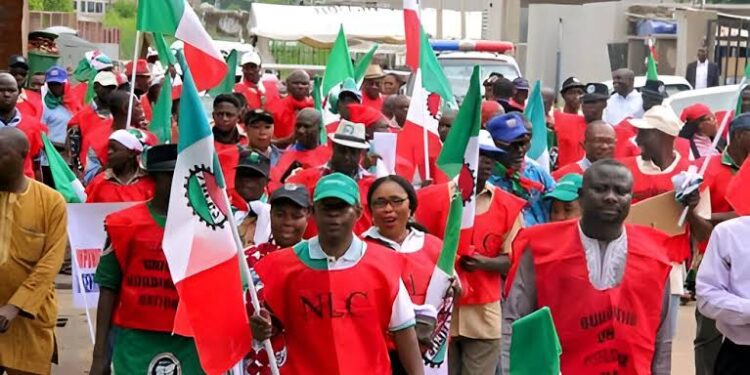The Nigeria Labour Congress (NLC) has stated that two years into President Bola Tinubu’s government, Nigerian workers and the masses have seen no progress, only agony and suffering.
In an assessment of the administration’s first two years, NLC President Joe Ajaero remarked that there has been nothing to celebrate since the government took control.
According to him, “When President Bola Tinubu took office on May 29, 2023, he promised a new dawn of bold economic changes that would rescue Nigeria from fiscal insecurity and put it on track for prosperity.
But two years later, the only thing bolder than his rhetoric is the magnitude of suffering and hardship his policies have inflicted on workers and ordinary Nigerians. Far from renewing hope, his administration has recycled the same failed neoliberal experiments of the past, proving once again that you cannot cure a patient by prescribing the poison that made them sick in the first place.”
“The sudden removal of the petrol subsidy sent shockwaves through an already fragile economy, causing fuel prices to skyrocket from N187 to over N600 per litre overnight. The government claimed it was a necessary sacrifice to free up funds for development—but where are the results?
“Instead of reinvestment, Nigerians got inflation so vicious that families now skip meals, businesses shut down daily, and transport costs consume what little remains of workers’ wages.
The naira’s value has plummeted due to so-called market forces’, making Nigeria a bargain cellar for neighbouring countries, while local companies choke under the weight of imported inflation.
“What makes this pain even more frustrating is that none of it is new. We’ve seen this script before subsidy removals, devaluations, and IMF-approved austerity, each time sold as the bitter pill Nigeria must swallow for a brighter future. But when has it ever worked? These same policies under past administrations only widened inequality, enriched a few, and left the majority poorer. Tinubu’s version is no different, except the suffering is deeper, the anger louder, and the government’s response more brutal.
“Nigerian workers have seen their real wages obliterated. Pensioners, SMEs (facing over 150 per cent inflation in inputs), and 150 million Nigerians are now multi-dimensionally poor. It has been two years of intimidation and harassment for Labour leaders and trade unions in Nigeria. Flagrant disregard for court orders and the criminalisation of union protests and actions have become the norm. Wage award arrears at the federal level remain unpaid, despite repeated promises.
“The only notable effort is the provision of compressed natural gas (CNG) buses by the Federal Government to ease transportation for Nigerian workers, but this remains grossly inadequate, hampered by severe gas infrastructure deficits.”




































